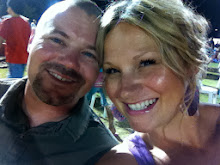What do we even do here? What don't we do is a better place to start.
Oftentimes folks hear of people going overseas to be 'missionaries' and picture the following: A group of white people in white collared shirts, khaki shorts, hiking boots and tan floppy hats show up in the jungle and spend years changing the people into American-type Christians that fit in a pretty box. They setup a church with music and teachings and Sunday school. Often they take much of their culture away because it's not biblical and get rid of their customs that they shouldn't be practicing as new Christians. After some years the missionaries leave behind a national pastor and hope he does things the way you showed him. Because duh, the Americans know best! Come on, tell me the idea of missionaries isn't like that!?! Ok, I'm the only one :)
Now for the 180. There is an amazing book called "Bruchko" that tells a story of a young American missionary going into a primitive and violent tribe of Indians called the Motilone. I think he was 17 when he went, and he went all by himself with no backing of any missions organization! He almost died multiple times. He learned their language, he learned how they hunted, traded, and worked. He learned how they held ceremonies for births and deaths. He participated in their rites of passage. He became a Motilone to them, a "blood-brother" of the chief's son. When Bruce Olsen, or Bruchko as they named him, finally told the story of Jesus it was years and years after initially going to be a "missionary" among them. He told his story in a way that used one of their very own customs that was ingrained in every Motilone's life; young, old, male and female. And it wasn't just another story, it was the only piece of an incomplete puzzle that had been troubling them for centuries. Jesus wasn't an addition to their culture, He was the designer and the foundation of their culture. He was the one whom all of their culture had pointed to for centuries, and they understood that truth the moment the story was explained. That's what Jesus is to all cultures. He is the missing piece, and when presented to the people within the context of their culture, He makes total sense and is oftentimes the relief their souls have been desiring. (I don't have fanciful ideas that everyone upon hearing of Jesus drops their beliefs in other gods, I'm just making the point of how powerful it is to present Him in culturally relevant ways).
How amazing is it that God created culture and He is in every culture already, and by His own design? I just love that. So our job is to find Him in it as we live among them. And we do it with grace, and patience (lots of patience!). With genuine love for the people and not an agenda besides that which is pure and abounding in kingdom desires. We do it with an urgency in our souls that sacrifices self at every corner if they would just see Jesus. Then, it's the work of God, the heavenly and majestic work of a soul and it's redeemer dancing together to the sweetest song of all time. Ok, that was sorta cheesy, but I'm not deleting it :-).
So what exactly do we do here? Well for starters, we walk around and pray... we get out of our apartment and prayer walk in the complex. We ask God to show us connections, reveal the "men of peace" like in Acts, we ask that He would orchestrate times of tea and snacks in someone's home, bring along someone who is suffering or rejoicing so we can pray with them in Jesus' name. We invite people over for meals or for play-dates. We spend time engaging the people right where they are. We ask about their cultures and participate in their celebrations, even if they have alters built in their apartments (no joke). We learn about what is important to them. Not because we are trying to pull out our trump card one day, but because we genuinely desire to know them. We are making friends... the kind of friends that care about each other and spend time in community together. We hang out in their homes and listen to stories and then tell stories of our own.
We are always praying for God to give us bridges or on-ramps to talk about Him. In all of these story-telling cultures they enjoy hearing us talk, even when it's about our God. Unlike American culture, it is considered odd to them if we love our God and then do not share about Him with others (a post on that later!). So we pray for those bridges, a time in the conversation where we are reminded of a story of Jesus or a story in the Old Testament that shows God's heart. Then we pray for more on-ramps, and thank God immensely that He allows us to engage such precious people as we serve Him. And we eat lots of interesting food. Prayers appreciated :-)

